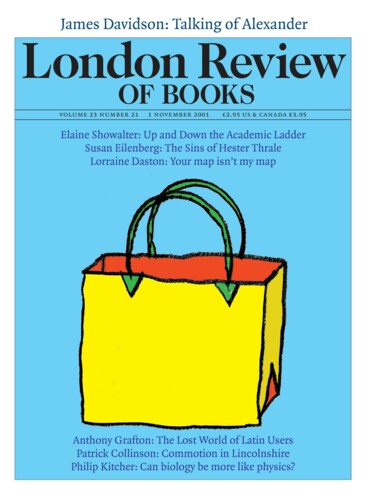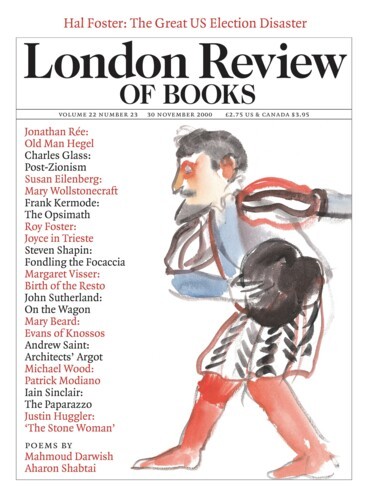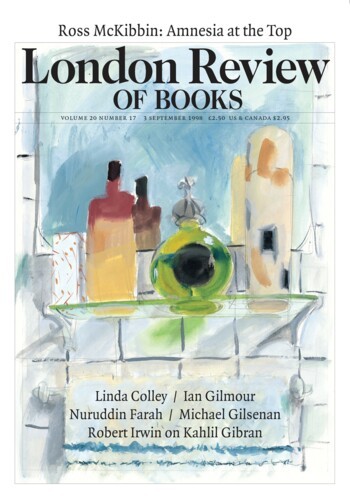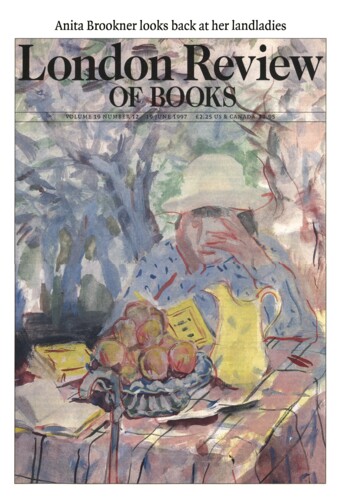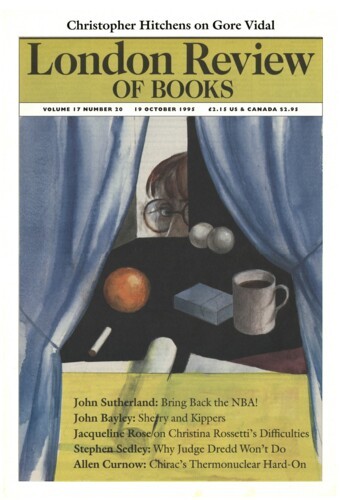Leaf, Button, Dog: The Sins of Hester Thrale
Susan Eilenberg, 1 November 2001
Who would believe Goldy when he told of a Ghost? a Man whom One could not believe when he told of a Brother.
Hester Lynch Thrale Piozzi, marginal annotation to Boswell’s Life of Johnson
Here is a museum. Visitors may see in it Nero’s couch, a statue of Cerberus and a skeleton of an Ethiopian, the bones stuck with porcupine quills. Here is a cabinet of curiosities. In it are a...
